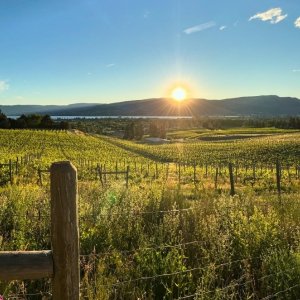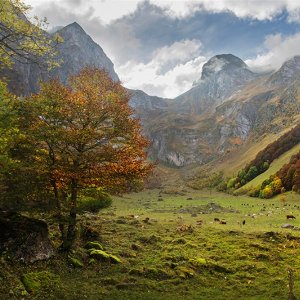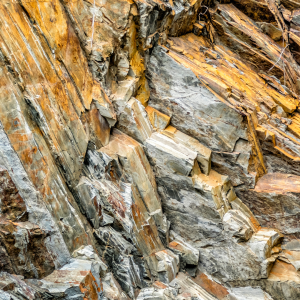Golden leaves crunch under your feet as the fresh air caresses your face. It's the sign that autumn has arrived, bringing with it, besides the color spectacle, a unique opportunity to reconnect with nature in a sustainable way, without so much hustle and with unique colors.
In this article, we will present activities to enjoy this special time of year, respecting nature and the local culture, so that we can continue to enjoy these places all year round.
Join us on this journey through the magic of autumn with the best recommendations on what to do in nature and what places to visit.
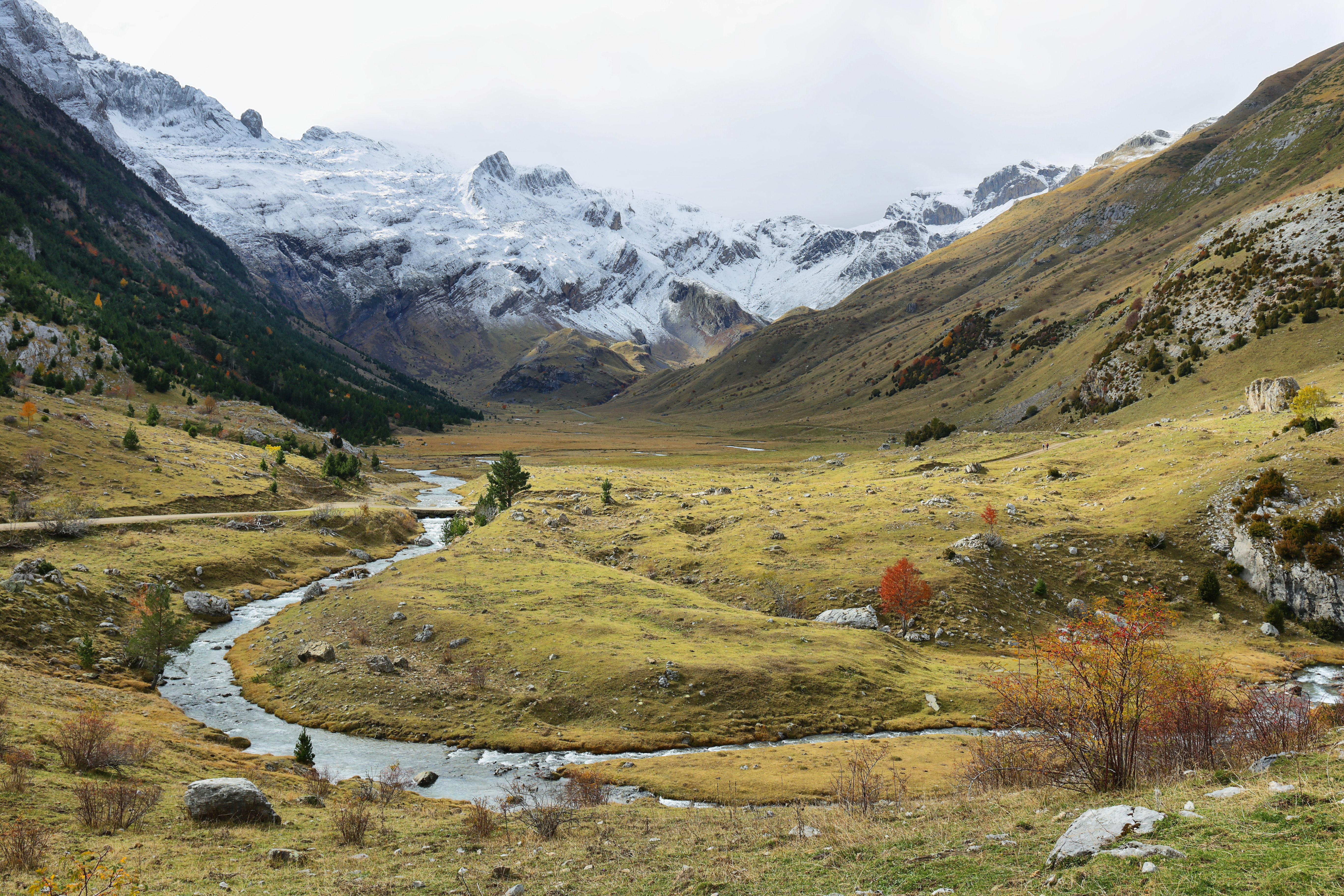
How to plan a visit to autumn forests
Forests are the undisputed star of this time of year, so let's look at the best tips to enjoy your escapes to them even more.
First, always respect the marked trails to avoid damaging vegetation and not disturbing wildlife, especially during the mating season of certain animals, such as deer.
It is the season for mushroom picking and wild fruits, and since many of us enjoy these natural delicacies, you need to be informed about local regulations on their collection and protected species to pick the right amount.
Regarding mushrooms, use harvesting techniques that do not damage the mycelium or plants. The best way to learn this is by joining a group of mycologists who will teach you all the techniques. Always carry mushrooms in a wicker basket to disperse their spores and, of course, pick only what you will consume.
Of course, when you visit the forests, wear light and warm clothing, because in the mid-seasons the weather can change very quickly.
And finally, teach other travelers your good practices so they can follow them too. For example, by sharing your sustainable and responsible experiences on social media.

Create ephemeral art
A new artistic trend has emerged: ephemeral art with autumn leaves. This sustainable practice combines creativity and environmental awareness to beautify our lives. In this form of artistic expression, we use fallen leaves and other natural elements, such as pine cones or twigs, to create temporary works meant to be appreciated for a short time before reintegrating into the natural cycle.
Authors of these works collect leaves of various colors and shapes from the ground, respecting the environment. They always pick up loose and dry leaves, never tearing them from trees or bushes.
You can become an artist yourself with these materials, designing mandalas, sculptures, messages, or even natural installations in less frequented places. This process promotes a connection with nature and mindfulness, as well as educating about seasonal cycles.
As good ephemeral art has an expiration date, set by nature, taking photographs or videos of the created work will make it last in memory, besides allowing you to share it, inspiring others to create their own works.
The beauty of this practice is that it leaves no permanent mark, as it avoids the use of adhesives or fixatives, and varnishes. Everything must be done with natural elements found in the area.
In addition to its artistic value, ephemeral art serves as an educational tool on biodiversity and sustainability.

Where to visit in autumn
After these great ideas for autumn activities, let's show you the most spectacular and amazing places to visit during this time of year.
Destinations where forests are the main attraction for practicing ephemeral art and enjoying their colors.
The first place to recommend is the Ordesa y Monte Perdido National Park in Aragón. This National Park, one of the first in Spain, offers an incomparable autumn spectacle. Its deep canyons, crystal-clear waterfalls, and trails surrounded by golden beech trees create a dreamlike landscape. The park implements sustainable tourism practices, limiting access by private vehicles and promoting the conservation of its rich biodiversity.
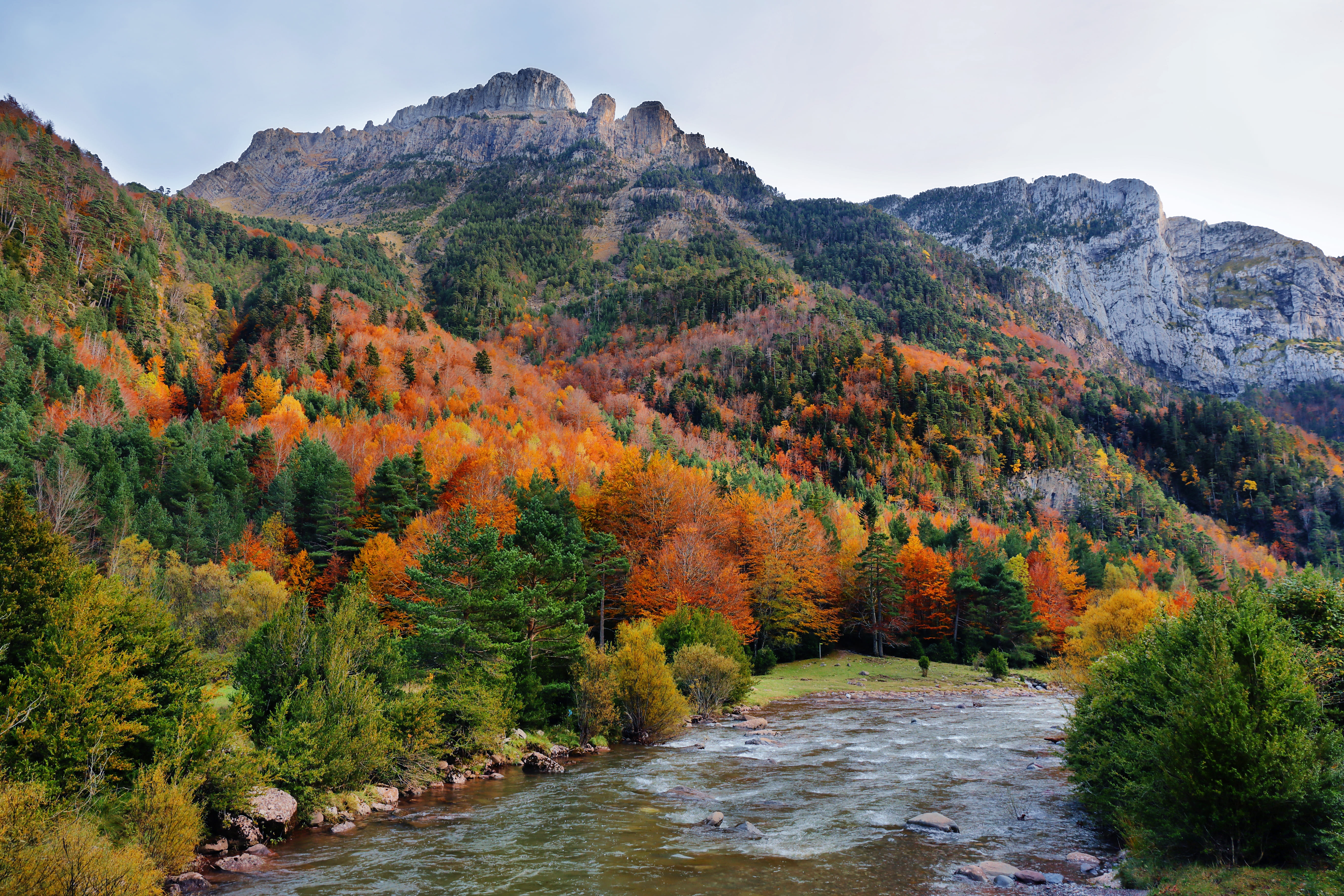
In Huelva, land of dehesa, the Sierra de Aracena y Picos de Aroche transforms into a tapestry of warm colors. Its chestnut forests not only offer a visual feast but also a gastronomic one with the traditional mushroom picking. The region promotes ecotourism and rural accommodations certified in eco-friendly practices.

Another great option is the Valle del Jerte in Cáceres. Famous for its cherry blossoms in spring, it reinvents itself in autumn. The trees turn shades of ochre and red, creating an impressive color mosaic. Here, activities such as agritourism and ethnobotanical routes connect visitors with local traditions.
To the north, in the Somiedo Natural Park in Asturias, declared a Biosphere Reserve, you will be amazed by its glacial lakes surrounded by autumn forests. It is a privileged place for responsible wildlife observation, including the iconic Cantabrian brown bear. It is difficult to observe, but not impossible. The park is an example of how tourism can contribute to sustainable local development.
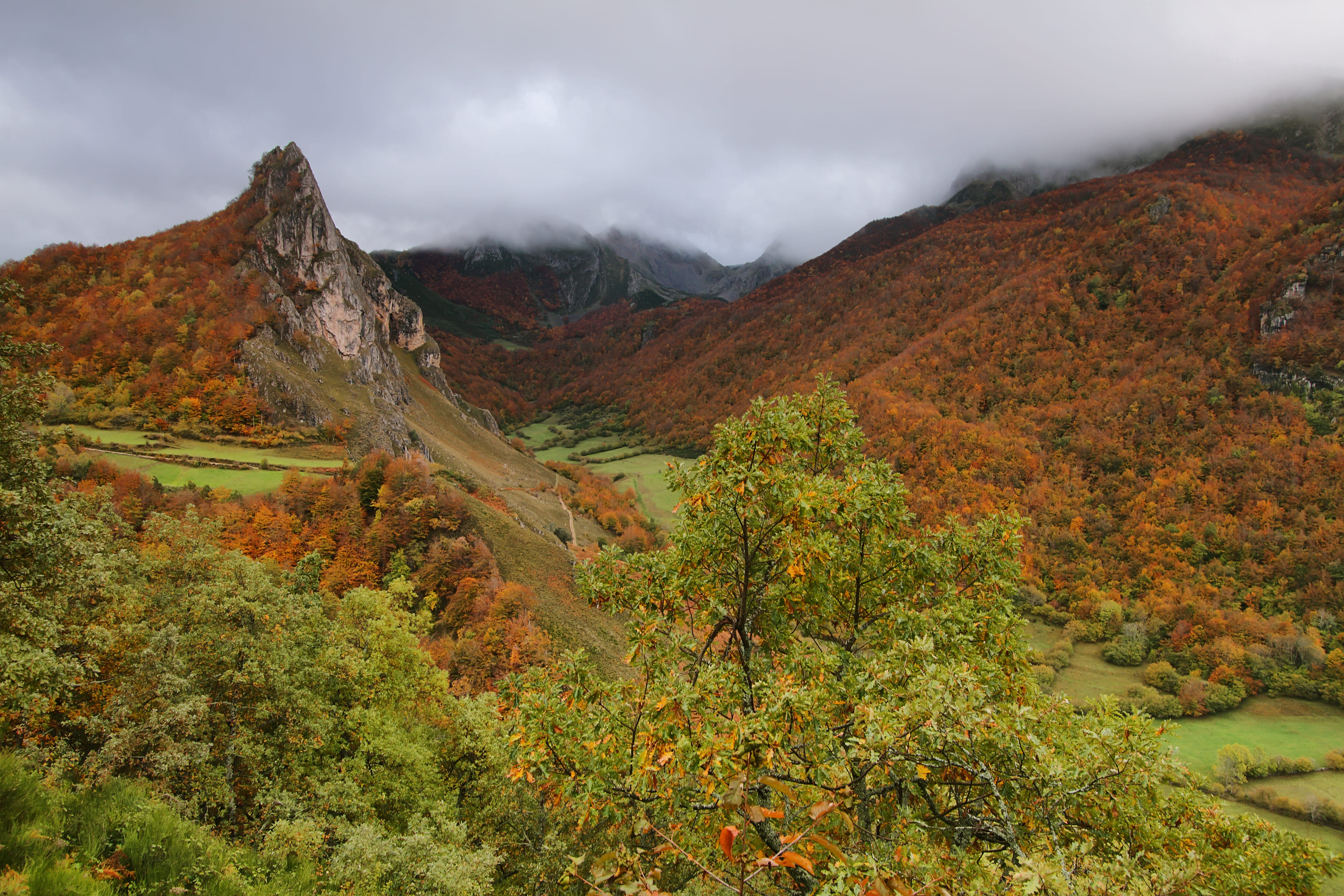
The volcanic area of La Garrotxa in Girona captivates with its unique landscape of dormant volcanic cones covered with beech forests that turn reddish in autumn. This region is a pioneer in sustainable tourism initiatives and environmental education, offering unique agritourism experiences and organic local products. Anigami Experiènces is an example of a company with Biosphere certification in sustainability, where you can find a multitude of activities and experiences for your most responsible autumn adventures in the area.

Finally, the Irati Forest, straddling Navarra and the French Basque Country, is the second largest beech-fir forest in Europe. In autumn, its more than 17,000 hectares become a breathtaking color spectacle. It offers hiking trails for all levels and the opportunity to observe wildlife such as deer and woodpeckers in their natural habitat.

Although all these destinations are extraordinary, the Irati Forest stands out as the most iconic place to visit in autumn. Its vast expanse, incredible biodiversity, and the fascinating color contrast of its forests create a unique landscape in Spain. Moreover, the region has strongly committed to responsible tourism, implementing visitor limits and conservation programs that ensure the preservation of this natural treasure.
Join the ecological harvest
Autumn is the time to reap the harvest, and what better way to delve into the fascinating world of ecological harvesting in Spain, a practice that combines winemaking tradition with environmental care. It is growing in popularity in recent years.
Imagine vineyards in autumn, with ripe clusters ready to be harvested. You can think, for example, of the landscapes of Rioja Alavesa. In ecological harvesting, this traditional process is carried out with a respectful approach to the environment.
Sustainable wineries avoid pesticides and chemical fertilizers. Instead, natural methods are used for pest control and soil enrichment, such as composting and crop rotation. It is an approach that seeks a balance between cultivation and its ecosystem, offering a higher quality product.
Grape harvesting is mostly done by hand. This practice not only ensures careful selection of the clusters but also reduces the carbon footprint by minimizing machinery use. It also promotes local employment and keeps rural traditions alive.
If you want to experience this process firsthand, many ecological wineries offer sustainable wine tourism activities during the harvest season. You can participate in various ways: some wineries allow visitors to pick grapes for a few hours, experiencing the manual labor of the harvest.
Others offer the traditional experience of grape stomping, a practice maintained in some regions, such as La Rioja, for its cultural and touristic value. If you prefer a less active experience, you can opt for guided tours where you will observe the harvesting process and learn about ecological viticulture.
These visits often include organic wine tastings and, sometimes, meals with local seasonal products. By participating in these activities, you not only have a unique experience but also support the local economy responsibly.

These activities and destinations show us that it is possible to enjoy the autumn beauty while positively contributing to the conservation of our environment. Autumn sustainability is not just about preserving the landscape, but being part of it in a respectful way.
We encourage you to explore these places and try these activities with a new perspective this autumn. Every small action, from creating a leaf artwork to choosing an organic wine, adds to our collective effort for more sustainable tourism.









